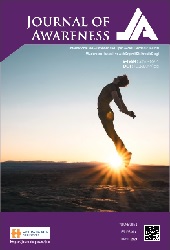Covid-19 salgını sürecinde yüksek lisans öğrencilerinin gözünden uzaktan eğitim
Distance Education through the Eyes of Postgraduate Students During the COVID-19 Epidemic
Author(s): Esen Yıldırım, Gülen Arikan KokkayaSubject(s): Higher Education , Health and medicine and law, Distance learning / e-learning
Published by: Rating Academy
Keywords: COVID-19; Distance Education; Master’s degree; University; Postgraduate Education;
Summary/Abstract: In this study, the distance education experiences of graduate students during the COVID19 epidemic were discussed. Within the scope of the study, an online questionnaire was applied to students enrolled in a graduate program at Marmara University in the 2020-2021 academic year and 501 students shared their opinions. The students participating in the survey are in the 23-56 age group, 59% are male, 41% are female, 24% are married and 66% work in a job. 71% of the students are enrolled in social sciences, while 19% enrolled in science, 8% enrolled in health sciences and 11 students enrolled in fine arts programs. 74% of them are studying in a thesis program while 26% of them are studying in a non-thesis program. Within the scope of the study, the relationship structure between the students’ perspectives on distance education that they experienced during the COVID-19 epidemic; and their demographic characteristics, the field of education (social, science, health sciences and fine arts) and the type of program (with or without thesis) were investigated, and their preferences on type of education for the post-epidemic period were examined. It is understood that the epidemic period is perceived as an educational opportunity, especially by masters students studies without thesis. In terms of the field of the master’s program, since distance education will be applied, the weight of those who decide to do a master’s degree is observed at the highest level in the field of science. While gender was not effective on distance education experiences of graduate students; marital status, working status and age variables were found to be effective. It has been understood that distance education has been adopted by graduate students very quickly and at the graduate level, it will be a demanded form of education after the epidemic was over.
Journal: Journal of Awareness (JoA)
- Issue Year: 6/2021
- Issue No: 4
- Page Range: 247-267
- Page Count: 21
- Language: Turkish

